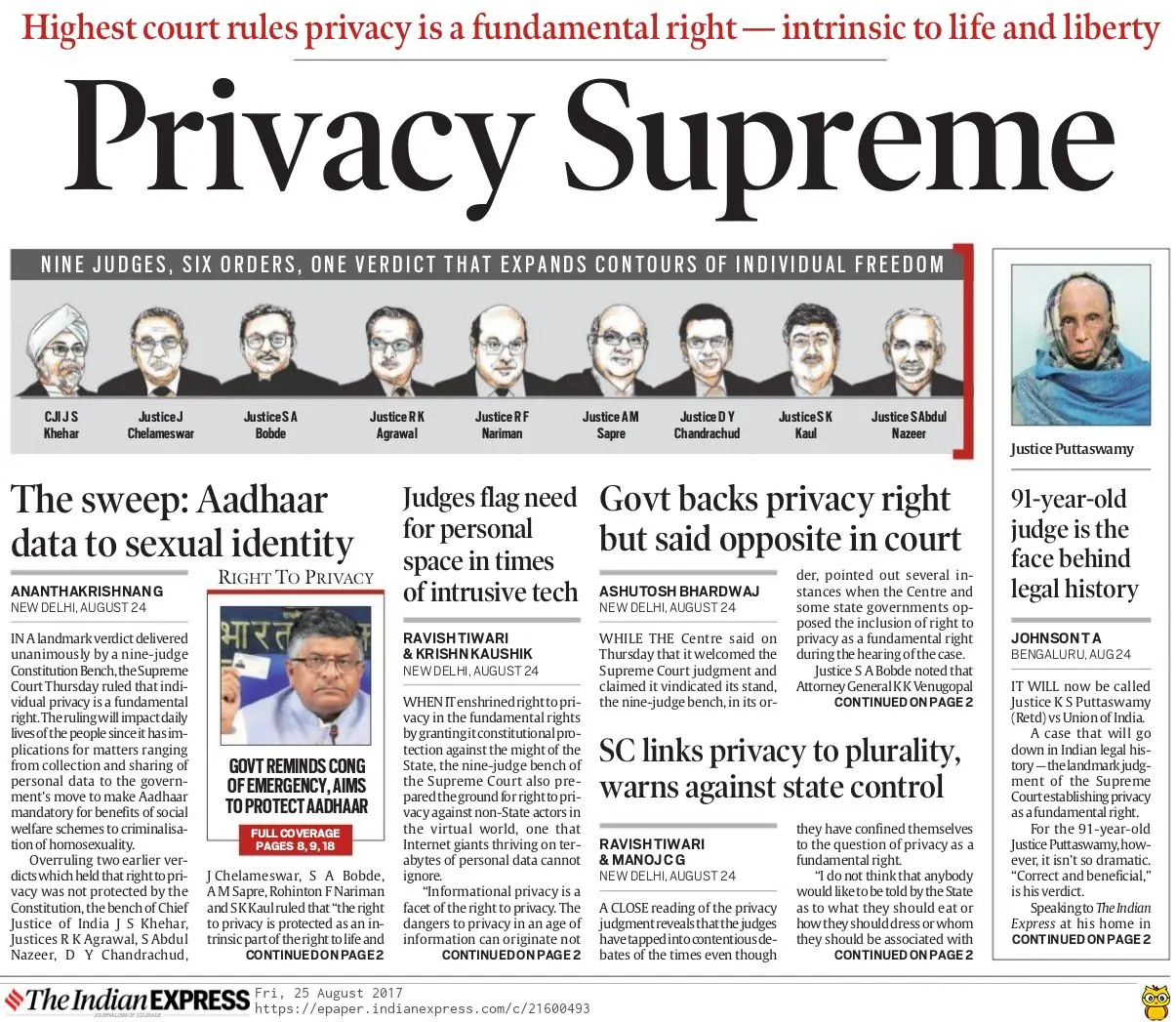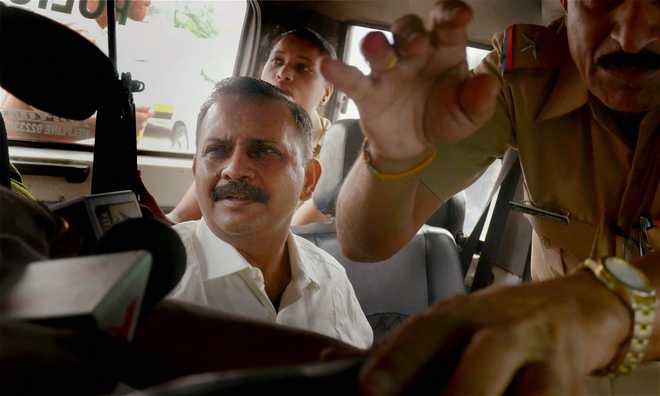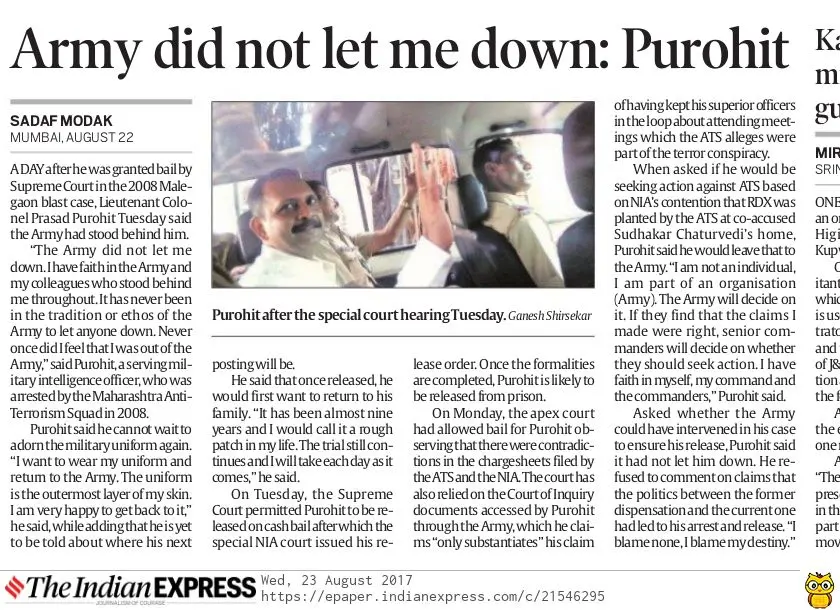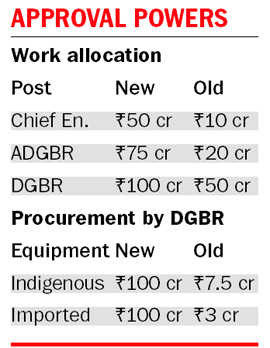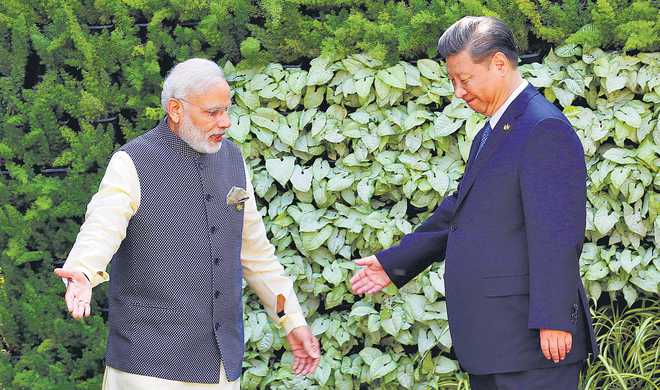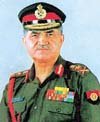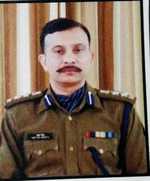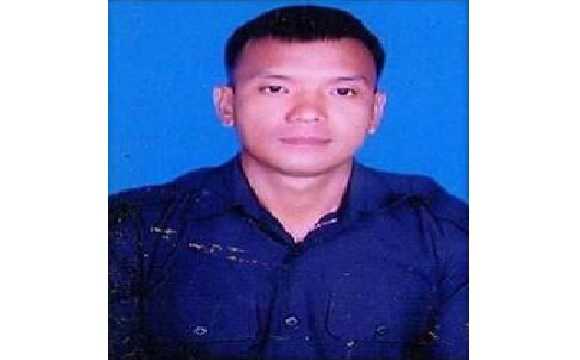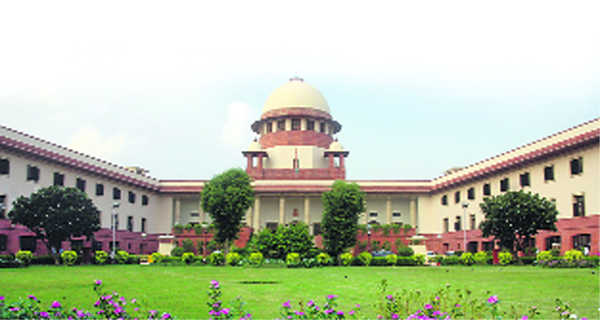
Satya Prakash
Tribune News Service
New Delhi, August 24
In a landmark verdict, the Supreme Court on Thursday declared right to privacy a fundamental right under the Constitution, saying it was “the constitutional core of human dignity”.“The right to privacy is protected as an intrinsic part of the right to life and personal liberty under Article 21 and as a part of the freedoms guaranteed by Part III (Fundamental Rights Chapter) of the Constitution,” a nine-judge Constitution Bench headed by Chief Justice of India JS Khehar ruled in a unanimous verdict.
Edit: Fundamentally right
Oped: Now, make privacy law However, the Bench clarified that like other fundamental rights, the right to privacy was not absolute and any encroachment will have to withstand the touchstone of permissible restrictions. A law to survive a challenge on the ground of violation of Article 21 must be fair, just and reasonable.Noting that informational privacy was a facet of the right to privacy and dangers to privacy in an age of information could originate from both the state and non-state actors, the Bench asked the Centre to put into place a robust regime for data protection. “The creation of such a regime requires a careful and sensitive balance between individual interests and legitimate concerns of the state,” it said.(Follow The Tribune on Facebook; and Twitter @thetribunechd)“The legitimate aims of the state would include, for instance, protecting national security, preventing and investigating crime, encouraging innovation and the spread of knowledge, and preventing the dissipation of social welfare benefits,” the top court said.The court said, “These are matters of policy to be considered by the Union government while designing a carefully structured regime for the protection of the data.”“Since the Union government has informed the court that it has constituted a committee chaired by Justice BN Srikrishna, former SC judge, for that purpose, the matter shall be dealt with appropriately by the Union government having due regard to what has been set out in this judgment,” it added.The verdict, which lays down the law on right to privacy, would have a bearing on petitions seeking to declare illegal Section 377 which criminalises gay sex. It will also affect the outcome of petitions challenging the ‘two-finger test’ conducted on rape victims.The government’s ambitious Aadhaar scheme will get impacted as petitions challenging it on the ground of violation of right to privacy would be decided by a smaller Bench separately on the basis of the law declared by the nine-Judge Bench.The verdict assumes significance in the age of social media, as individuals can claim constitutional protection for their data. It will also impact the outcome of petitions challenging the WhatsApp privacy policy pending before a five-judge Constitution Bench.The Bench said life and personal liberty were “inalienable rights”. “Privacy with its attendant values assures dignity to the individual and it is only when life can be enjoyed with dignity can liberty be of true substance. Privacy ensures the fulfilment of dignity and is a core value which the protection of life and liberty is intended to achieve,” the Bench said.The all-important ruling came on petitions filed by former Karnataka High Court Judge KS Puttaswamy, child rights activist Shanta Sinha, former bureaucrat and activist Aruna Roy, former Major General Dr Sudhir G Vombatkere and others who contended that right to privacy was a fundamental right and the Aadhaar scheme violated it.The nine-judge Constitution Bench specifically overruled two earlier verdicts that said right to privacy was not a fundamental right under the Constitution.In MP Sharma and others versus Satish Chandra, an eight-judge Constitution Bench had held in 1954 that right to privacy was not a fundamental right. A similar view was taken by a six-judge Bench in 1962 in Kharak Singh versus the State of Uttar Pradesh.It was on the basis of these two judgments that the then Attorney-General Mukul Rohatgi had asserted before the top court in 2015 that citizens didn’t have a fundamental right to privacy, inviting criticism from civil society and rights activists.But during the hearing, Rohatgi’s successor KK Venugopal had conceded that right to privacy was a fundamental right. He, however, had asserted that it was a qualified right and the government had a right to regulate it through a law.In all there were six separate but concurring verdicts. The CJI, who didn’t write one, pronounced the operative part of the verdict signed by all nine judges in a jam-packed courtroom at 10.39 am. Other judges on the Bench were Justices DY Chandrachud, J Chelameswar, SK Kaul, SA Bobde, RF Nariman, AM Sapre, RK Agarwal and Abdul Nazeer.LANDMARK VERDICT DECODED
What it said
- The decision in MP Sharma case (1954), holding that right to privacy is not protected by the Constitution, stands over-ruled
- The decision in the Kharak Singh (1962) case, to the extent that it holds that right to privacy is not protected by the Constitution, also stands over-ruled
- The right is protected as an intrinsic part of right to life and personal liberty under Article 21 and as part of freedoms guaranteed by Fundamental Rights chapter of the Constitution
- Decisions subsequent to Kharak Singh case, which say right to privacy is protected as an intrinsic part of the right to life and personal liberty, lay down the correct position in law.
Likely impact
Aadhaar scheme
Based on the law laid down by the nine-judge Constitution Bench, a smaller Bench would examine the validity of Aadhaar law and decide whether it violates right to privacy of individuals
Whatsapp privacy policy
A five-judge Bench is seized of petitions against it. Issues of right to privacy will be decided on the basis of the law declared by the nine-judge Bench
Homosexuality
Section 377, which criminalises gay sex, becomes vulnerable after right to privacy has been declared a fundamental right. Pleas seeking to declare this Section illegal pending before Curative Bench
Pornography
Petitions seeking a blanket ban on pornography will now face robust opposition as those opposed to it might seek to defend it on the ground of right to privacy
Two-finger test
Petitions challenging two-finger test on rape victims now have a better ground in the form of right to privacy








